Documentaries
Feel free to check out some info on documentaries that we highly recommend. There are many methods for viewing these eye-opening films: your local Public Library, Netflix, Amazon Instant Video, Top Documentary Films, etc. So go ahead and make some of Grandma's Healthy Popcorn, sit back, relax and enjoy!
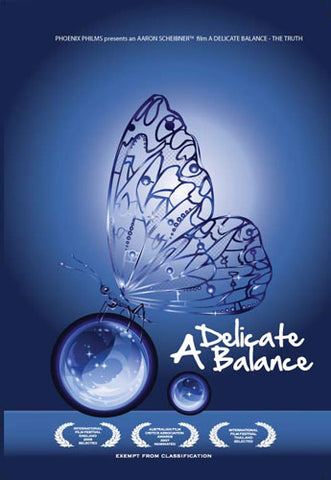
A Delicate Balance
A Delicate Balance: Disease has been escalating over the last 50 years resulting in 1 in 2 men and 1 in 3 women being diagnosed with cancer. Every person today has been touched or will be touched by the loss of a loved one to illness and premature death. In a time when modern medicine and science have made such enormous advancements, why is this so? Why are you three times more likely to die of colon cancer if you eat meat? Why don't our medical schools teach doctors about nutrition?

A Crude Awakening
A Crude Awakening: An unforgettable and shocking wake-up call, this documentary offers the rock-solid argument that the era of cheap oil is in the past. Relentless and clear-eyed, this intensively-researched film drills deep into the uncomfortable realities of a world that is both addicted to fossil fuels and blissfully unaware of the looming "peak oil" crisis. Drawing on an international cast of maverick energy experts and thinkers, directors Basil Gelpke and Ray McCormack debunk the conventional wisdom that oil production will continue to climb, and instead stare bleakly at a planet facing economic meltdown and conflict over its most valuable resource. Featuring a haunting score by Phillip Glass and a fascinating array of rare archival footage, the film explores oil's rocky relationship with human progress in locales ranging from ancient Baku, Azerbaijan to dusty oilpatch town McCamey, Texas.
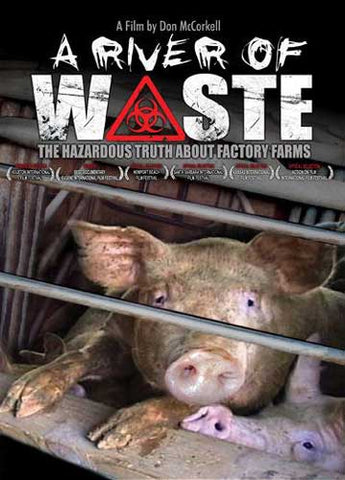
A River of Waste
A River of Waste: Exposing a huge health and environmental scandal in our modern industrial system of meat and poultry production. The damage documented in today's factory farms far exceeds the damage that was depicted in Upton Sinclair's novel, The Jungle, a book written over 100 years ago. Some scientists have gone so far as to call the condemned current factory farm practices as "mini Chernobyls." In the U.S and elsewhere, the meat and poultry industry is dominated by dangerous uses of arsenic, antibiotics, growth hormones and by the dumping of massive amounts of sewage in fragile waterways and environments. The film documents the vast catastrophic impact on the environment and public health as well as focuses on individual lives damaged and destroyed. As one observer noted, if terrorists did this, we would be up in arms, but when it is a fortune 500 company, it is just "business as usual.”

A World Without Water
A World Without Water: In 2000, the members of the United Nations committed to halving the number of people in the world without access to water by 2015. But within our lifetime over half of the world's population will be living without access to safe water and sanitation. The struggle for this precious resource and the battle for its ownership is explored through compelling stories of families living in Bolivia, Detroit, Dar Es Salaam, and Rajestan. As the background to these stories, we explore the conflicts over the future of water and see how even those living in the relatively water-rich UK hold the survival of the planet in our hands.
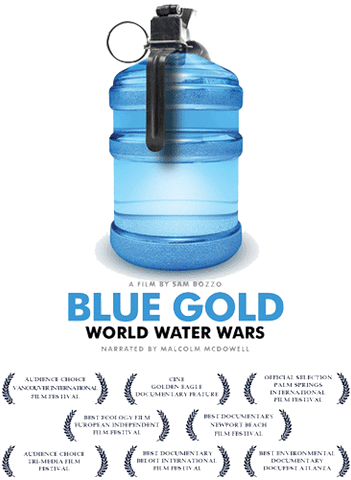
Blue Gold: World Water Wars
Blue Gold: World Water Wars: Wars of the future will be fought over water as they are over oil today, as the source of human survival enters the global marketplace and political arena. Corporate giants, private investors, and corrupt governments vie for control of our dwindling supply, prompting protests, lawsuits, and revolutions from citizens fighting for the right to survive. Past civilizations have collapsed from poor water management. Can the human race survive?

Burzynski: The Movie Part 1
Burzynski: Cancer Is Serious Business (Part 1): This true story follows a biochemist who challenged the Food and Drug Administration for his right to begin clinical trials on a new cancer treatment. In addition to recounting Burzynski's astonishing legal victories in the face of skepticism, this documentary also examines several of his patients and their success in fighting terminal cancer.
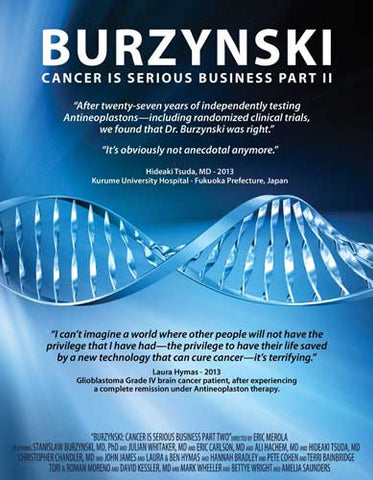
Burzynski: The Movie Part 2
Burzynski: Cancer Is Serious Business (Part 2): A compelling follow-up to the award-winning documentary, Burzynski; Burzynski: Cancer is Serious Business, Part II explores a controversial cancer therapy in clinical trials by USA's FDA--and cancer patients experience using this therapy.
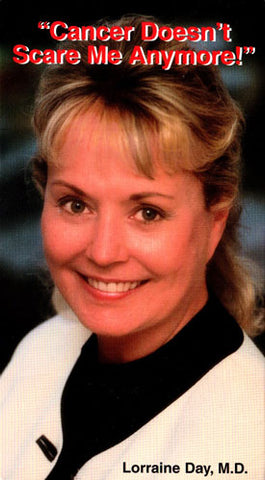
Cancer Doesn't Scare Me Anymore
Cancer Doesn't Scare Me Anymore: As a physician who developed cancer herself, Dr. Lorraine Day was well aware that physicians are more afraid of cancer than patients are, because doctors KNOW that chemotherapy, radiation and surgery are NOT the answer to cancer. She will help you understand why you don't need to fear cancer. She explains to you in terms you can understand all the confusing medical jargon you will hear from doctors. By following the orderly system of evaluation that she presents, you can then make calm, intelligent decisions about the best treatment methods for you.
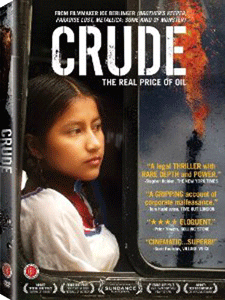
Crude
Crude: The Film Chevron Doesn't Want You To See: Crude is an award-winning documentary film that chronicles the epic battle to hold oil giant Chevron (formerly Texaco) accountable for its systematic contamination of the Ecuadorian Amazon – an environmental tragedy experts call "the Rainforest Chernobyl.

Dirt! The Movie
Dirt! The Movie: An empowering film about the 3-inch layer of living skin that surrounds the earth. Usually water and air pollution get all the attention but in this film our most precious natural resource, essential for life to exist, is finally in the lime light. We have treated and currently still do treat this vitally important element of life as if it doesn't matter. Learn what you can do to save our DIRT!
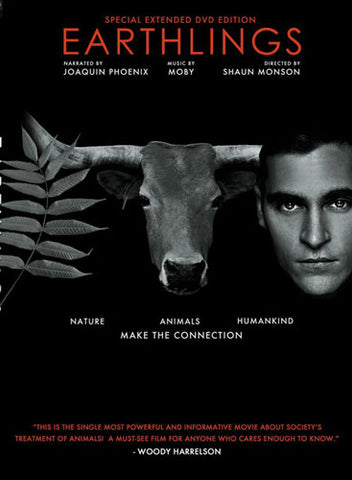
Earthlings
Earthlings: An award-winning documentary film about the suffering of animals for food, fashion, pets, entertainment and medical research. Considered the most persuasive documentary ever made, Earthlings is nicknamed "the Vegan maker" for its sensitive footage shot at animal shelters, pet stores, puppy mills, factory farms, slaughterhouses, the leather and fur trades, sporting events, circuses, and research labs.

Eating
Eating: If you know someone with heart disease - who doesn't? - this will probably be the most valuable film they will ever watch - and from authorities with impeccable credentials. And if you eat to prevent heart disease, you will also prevent the other major diseases that are plaguing Western nations. You will also hear from Dr. Heidrich who, after surgery, treated her breast cancer without chemotherapy, radiation, or any other conventional treatments by following The Rave Diet.
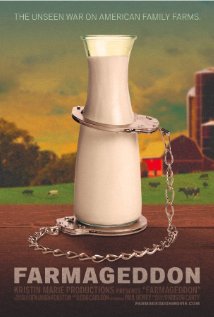
Farmageddon
Farmageddon: In America, you would believe that you have the right to choose what kind of foods you and your family consume on a regular basis; that it would be okay for you to choose to go to a local farm and purchase anything you want. After all, you can choose to smoke (even around your kids), or drink excessive amounts of alcohol, or even choose to feed your family nothing but junk foods and no one says a word.
Farmageddon is an enlightening film, documenting the U.S. government's constant attacks on innocent farmers and consumers, under the premise that they are just protecting the population. If the government controls the food you eat and the healthcare you receive, sickness is chronic. That is exactly what has happened in the U.S.
Farmageddon answers some great questions: Who controls my body? What are the true safety records of small farms? Why does local/organic food cost more?

Fast Food Nation
Fast Food Nation: Geared toward exposing the horrific truth about the fast food and meat industries in America. This film examines the local and global influences of fast food.
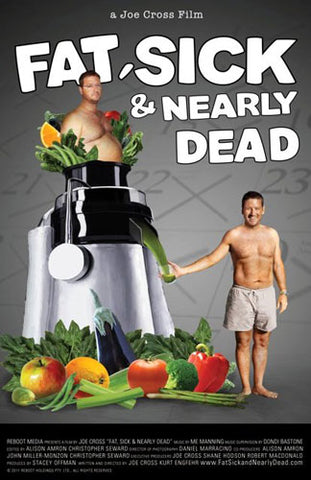
Fat, Sick and Nearly Dead
Fat, Sick and Nearly Dead: 100 pounds overweight, loaded up on steroids and suffering from a debilitating autoimmune disease, Joe Cross is at the end of his rope and the end of his hope. In the mirror he saw a 310 lb man whose gut was bigger than a beach ball and a path laid out before him that wouldn't end well— with one foot already in the grave, the other wasn't far behind. FAT, SICK & NEARLY DEAD is an inspiring film that chronicles Joe's personal mission to regain his health.

Flow
Flow: For The Love of Water: There is no new water! This film brings the global water issues to light. Privatization, wastefulness, and greed are quickly ravaging the limited supply we have. Fresh water is essential for human life. Do we have a right to water? Giant corporations say NO, they believe water can be owned and sold for profit. Beyond identifying the problem, FLOW also gives viewers a look at the people and institutions providing practical solutions to the water crisis and those developing new technologies, which are fast becoming blueprints for a successful global and economic turnaround.
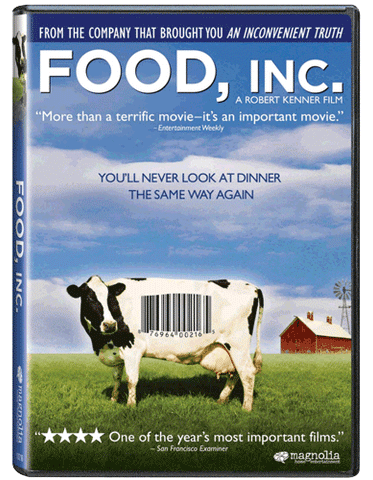
Food Inc.
Food, Inc.: A complete picture of our food system. Explains how large corporations like Monsanto have changed agriculture and farming as we know it. Being more focused on quantity rather than quality has created problems that didn't exist before. To solve these new problems, they didn't go back to where the problem started, they came up with new high tech HUGE profit (for them) solutions which have not fixed anything and have made bigger problems. GMO's, FDA, Fast Food it’s all in there.

Food Matters
Food Matters: Food Matter examines how the food we eat can help or hurt our health. Nutritionists, naturopaths, doctors, and journalists weigh in on topics organic food, food safety, raw foodism, and nutritional therapy.
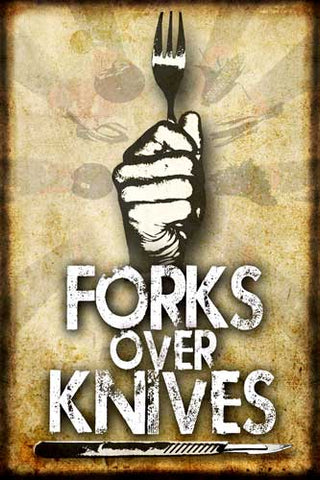
Forks Over Knives
Forks Over Knives: This documentary examines the profound claim that most, if not all, of the degenerative diseases that afflict us can be controlled or even reversed by rejecting our present menu of animal-based and processed foods. The major story line in the film traces the personal journeys of a pair of pioneering yet under-appreciated researchers, Dr. T. Colin Campbell and Dr. Caldwell Esselstyn.
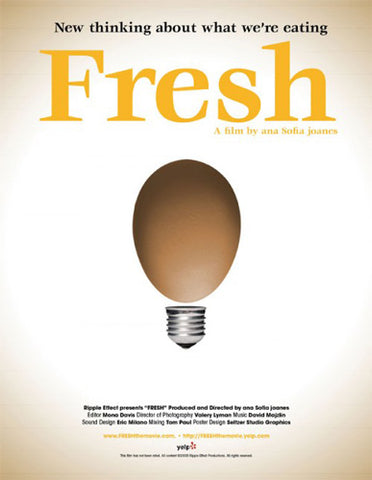
Fresh
Fresh: Joel Salatin, a farmer that has defied the flawed principles of monoculture and corporate farming. His farm consists of varied species of plants and animals, all of which thrive together in harmony as nature intended. He clearly speaks from a lifetime of experience as he eloquently depicts the flawed logic behind the centralized and industrialized food system. Fresh really drives home the idea that the more a food substance is processed, the less nutritious it becomes.
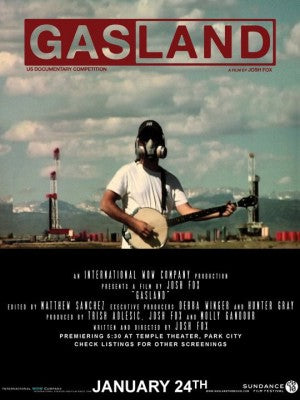
Gasland
Gasland: It is happening all across America-rural landowners wake up one day to find a lucrative offer from an energy company wanting to lease their property. Reason? The company hopes to tap into a reservoir dubbed the "Saudi Arabia of natural gas." Halliburton developed a way to get the gas out of the ground-a hydraulic drilling process called "fracking"-and suddenly America finds itself on the precipice of becoming an energy superpower.

Genetic Roulette
Genetic Roulette: Never-Before-Seen-Evidence points to genetically engineered foods as a major contributor to rising disease rates in the US population, especially among children. Gastrointestinal disorders, allergies, inflammatory diseases, and infertility are just some of the problems implicated in humans, pets, livestock, and lab animals that eat genetically modified soybeans and corn. Monsanto’s strong arm tactics, the FDA’s fraudulent policies, and how the USDA ignores a growing health emergency are also laid bare. This sometimes shocking film may change your diet, help you protect your family, and accelerate the consumer tipping point against genetically modified organisms (GMOs). Don’t miss this film!

Heart and Soil
Heart & Soil: Heart & Soil is a family documentary that clips along with the pace of barefoot children and frolicking livestock. The film takes us on a journey into the rich landscape and lives of farmers in the southwest and into the bustling energy of farmer's markets and farm to school programs. The farmers are an inspiration about cycles of life, and the importance of small scale farming as a means toward better personal and planetary health.
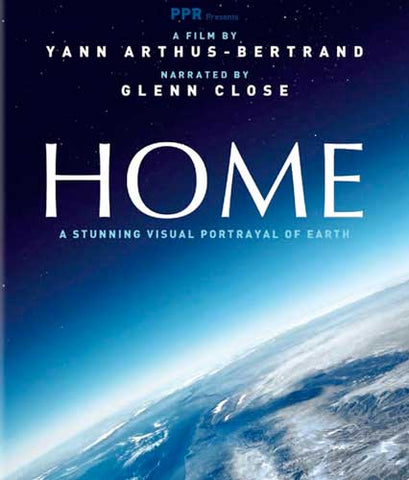
Home
Home: This 2009 documentary by Yann Arthus-Bertrand is almost entirely composed of aerial shots of various places on Earth. It shows the diversity of life on Earth and how humanity is threatening the ecological balance of the planet.

Hungry For Change
Hungry For Change: The latest 'Food Matters' film, exposes shocking secrets the diet, weight loss and food industry don't want you to know about. Deceptive strategies designed to keep you craving more and more. Could the foods we are eating actually be keeping us stuck in the diet trap?

InGREEDients
InGREEDients: In the documentary 'inGREEDients', registered nurse and filmmaker David Burton discovers an alarming connection between diet and illness while investigating trans fats and hydrogenated oils in America's food supply. Do you know what a partially hydrogenated oil is? What does zero grams of trans fat per serving really mean? Find out in this compelling documentary that takes the audience on a time-line journey through the history of human food consumption from prehistoric times to the present, when heart disease is the number one killer of humans and despite recent changes in food labeling laws, pounds of trans fats are consumed everyday.

Killer At Large
Killer At Large: Why Obesity Is America's Greatest Threat: Obesity causes 110,000 American deaths each year and plays a role in one-third of all cancer deaths. Yet, despite ballooning concerns, little is being done on the public policy level, as this probing documentary explains. Exploring the issue from individual, political, scientific and cultural perspectives, the film features appearances by Bill Clinton, Ralph Nader, Arnold Schwarzenegger, former Surgeon General Richard Carmona and others.
King Corn: America’s most subsidized crop. Two friends plant an acre of corn and track it from seed to shelf only to discover that that because American politics has instituted industrial-style mono cropping, corn once a sweet nutritious veggie is now a toxic part of every living man and animal in this country.

Liquid Assets
Liquid Assets: The Story of Our Water Infrastructure: Liquid Assets is a public media and outreach initiative that seeks to inform the nation about the critical role that our water infrastructure plays in protecting public health and promoting economic prosperity. Combining a ninety-minute documentary with a community toolkit for facilitating local involvement, Liquid Assets explores the history, engineering, and political and economic challenges of our water infrastructure, and engages communities in local discussion about public water and waste water issues.
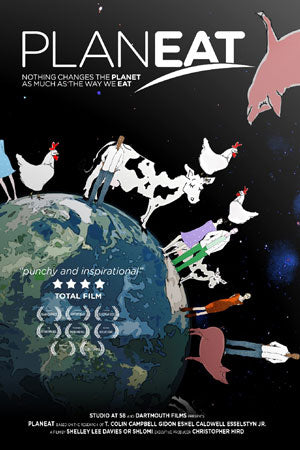
Planeat
Planeat: The debate between meat and veg is timeless. Whether it is lifestyle, ethics or health, the two sides always carry a lot of heat. In Planeat, first-time documentary filmmakers articulately touch on a variety of topics related to the detrimental effects of meat by taking a close look at the real role that its consumption plays not only in the health of humans, but the health of the planet. For those who have already denounced the animal-protein diet, this film offers many levels of well-deserved justification aimed at their casein-craving counterparts. From cancer to ozone depletion to awesome-looking meat-free dishes, Planeat offers a well-presented case against eating meat that even the most carnivorous of viewers can relate to.
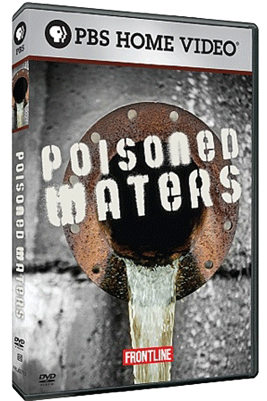
Poisoned Waters
Poisoned Waters: More than three decades after the Clean Water Act, iconic American waterways like the Chesapeake Bay and Puget Sound are in perilous condition and facing new sources of contamination. With polluted runoff still flowing in from industry, agriculture and massive suburban development, scientists note that many new pollutants and toxins from modern everyday life are already being found in the drinking water of millions of people across the country and pose a threat to fish, wildlife and, potentially, human health. In Poisoned Waters, Pulitzer Prize-winning journalist Hedrick Smith examines the growing hazards to human health and the ecosystem.

Processed People
Processed People: Fast food, fast medicine, fast news, and fast lives have turned many Americans into sick, uninformed, indebted, “processed” people. Nine experts discuss why and how we got ourselves into this mess and the things we can do to fix it.
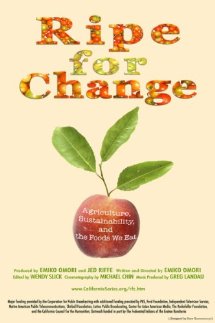
Ripe For Change
Ripe For Change: This fascinating documentary explores the intersection of food and politics in California over the last 30 years. It illuminates the complex forces struggling for control of the future of California's agriculture, and provides provocative commentary by a wide array of eloquent farmers, prominent chefs, and noted authors and scientists. The film examines a host of thorny questions: What are the trade-offs between the ability to produce large quantities of food versus the health of workers, consumers, and the planet? What are the hidden costs of "inexpensive" food? How do we create sustainable agricultural practices?
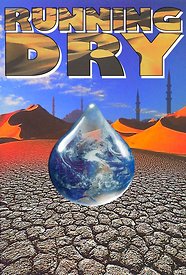
Running Dry
Running Dry: This is a documentary inspired by former U.S. Senator Paul Simon’s book Tapped Out, which addresses the evolving world water crisis and what we as citizens can do about it. The film was written, produced and directed by Jim Thebaut of the Chronicles Group. Actress Jane Seymour serves as the film’s narrator.

Simply Raw, Reversing Diabetes in 30 Days
Simply Raw, Reversing Diabetes in 30 Days: This mouth dropping documentary clearly shows that Diabetes is totally curable if YOU choose to take responsibility for your health. Six participants are followed; the emotional struggles as well as the triumphs they endure during this life-changing journey are incredible. I believe one of the biggest lessons learned by all was discovering the body’s awesome power to heal from all kinds of health issues, if given the right foods.

Super Size Me
Super Size Me: Filmmaker Morgan Spurlock unravels the American obesity epidemic by interviewing experts nationwide and by subjecting himself to a “McDonald’s only” diet for thirty days straight. His Sundance award-winning feature is as entertaining as it is horrifying as it dives into corporate responsibility, nutritional education, school lunch programs, and how we as a nation are eating ourselves to death.

Sustainable Table
Sustainable Table: What's On Your Plate?: Over nine months, director Mischa Hedges and his crew traveled the west coast to learn more about our food system. While interviewing farmers, agricultural experts, nutritionists and activists, Mischa and his team learned that the standard methods of producing food do not take environmental or human health costs into consideration. What’s on your plate? Where does it come from? What effects does it have on the environment and your body? What can you do to help?

Sweet Misery
Sweet Misery: Excellent documentary showing how dangerous artificial sweetener Aspartame is. From its history to its effects, this video is enough to shock anyone into really looking at the food labels next time they shop. Aspartame is a toxic food that came into the world as an investment by Donald Rumsfeld, while ignoring the deadly effects the tests showed. Take a good look at this video, it could save lives.
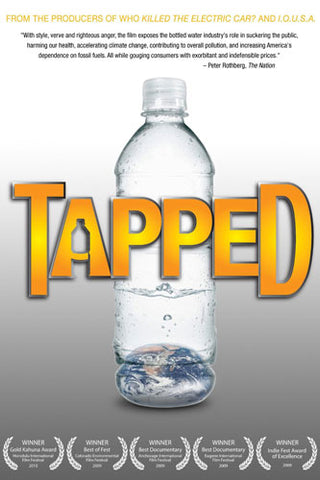
Tapped
Tapped: The high cost -- to both the environment and our health -- of bottled water is the subject of this documentary that enlists activists, environmentalists, community leaders and others to expose the dark side of the bottled water industry. Americans may rethink their obsession with bottled H20 when they learn of the unregulated industry's willingness to ignore environmental and health concerns, and the problems that arise as a result.

The 11th Hour
The 11th Hour: This captivating documentary explores the perilous state of our planet, and the means by which we can change our course. Contributing to this crucial film are noted politicians, scientists, and other ambassadors for the importance of a universal ecological consciousness.

The Beautiful Truth
The Beautiful Truth: It has been said that more people live off cancer than die from it. The Beautiful Truth is a movie that can put a stop to this travesty. Here is a very practical guide to the intensive nutritional treatment of cancer and other life-threatening diseases that many would consider to have been impossible to obtain. But thanks to the work of Max Gerson, M.D., and his daughter, Charlotte Gerson, this knowledge is readily available. Max Gerson cured cancer. He did so with a strict fat-free, salt-free, low-protein, essentially vegetarian dietary regimen, based on great quantities of fresh vegetable juice, supplements, and systemic detoxification.
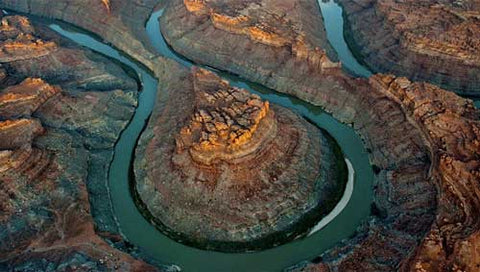
The Colorado River: Running Near Empty
The Colorado River: Running Near Empty: Photographer Peter McBride traveled along the Colorado River from its source high in the Rocky Mountains to its historic mouth at the Sea of Cortez. In this Yale Environment 360 video, he follows the natural course of the Colorado by raft, on foot, and overhead in a small plane, telling the story of a river whose water is siphoned off at every turn, leaving it high and dry 80 miles from the sea. In the video, McBride, a Colorado native, documents how increasing water demands have transformed the river that is the lifeblood for an arid Southwest.

The End of the Line
The End of the Line: Documentary filmmaker Rupert Murray examines the devastating effect that over-fishing has had on the world's fish populations and argues that drastic action must be taken to reverse these trends.

The Future of Food
The Future of Food: Uncovering a ton of information about food and most specifically GMOs, the ugly politics behind them and the very real possibility of devastating consequences for the planet.

The Living Matrix
The Living Matrix: This film uncovers new ideas about the intricate web of factors that determine our health. We talk with a group of dedicated scientists, psychologists, bioenergetic researchers and holistic practitioners who are finding healing potential in new places. The documentary brings together academic and independent researchers, practitioners, and science journalists whose work reveals scientific evidence that energy and information fields, not genetics, control health, and well-being.
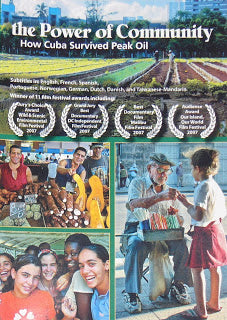
The Power of Community
The Power of Community: This documentary film explores the Special Period in Peacetime and its aftermath; the economic collapse and eventual recovery of Cuba following the fall of the Soviet Union in 1991. Following the dramatic steps taken by both the Cuban government and citizens, its major themes include urban agriculture, energy dependence, and sustainability.

The Story of Bottled Water
The Story of Bottled Water: Released on March 22, 2010 (World Water Day) employs the Story of Stuff style to tell the story of manufactured demand—how you get Americans to buy more than half a billion bottles of water every week when it already flows from the tap. Over five minutes, the film explores the bottled water industry's attacks on tap water and its use of seductive, environmental-themed advertising to cover up the mountains of plastic waste it produces. The film concludes with a call to take back the tap, not only by making a personal commitment to avoid bottled water, but by supporting investments in clean, available tap water for all.
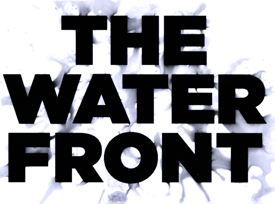
The Water Front
The Water Front: The Water Front is the story of an American city in crisis but it is not just about water. The story touches on the very essence of our democratic system and is an unnerving indication of what is in store for residents around the world facing their own water struggles.

The World According to Monsanto
The World According to Monsanto: There’s nothing they are leaving untouched: the mustard, the okra, the bringe oil, the rice, the cauliflower. Once they have established the norm: that seed can be owned as their property, royalties can be collected. We will depend on them for every seed we grow of every crop we grow. If they control seed, they control food, they know it – it’s strategic. It’s more powerful than bombs. It’s more powerful than guns.

Thirst
Thirst: Over a billion people lack access to safe drinking water. Each year, millions of children die of diseases caused by unsafe water. The numbers are increasing. These facts drive a debate in the opening scenes of “Thirst” at the 2003 Third World Water Forum in Kyoto, Japan. Politicians, international bankers, and corporate executives gather to decide who will control global fresh water supplies. Their consensus for large dams and privatized corporate water systems is challenged by experts and activists who assert that water is a human right, not a commodity to be traded on the open market.

Thrive
Thrive: What On Earth Will It Take?: An unconventional documentary that lifts the veil on what's really going on in our world by following the money upstream - uncovering the global consolidation of power in nearly every aspect of our lives. Weaving together breakthroughs in science, consciousness and activism, THRIVE offers real solutions, empowering us with unprecedented and bold strategies for reclaiming our lives and our future.

Two Angry Moms
Two Angry Moms: In the face of a national child health crisis, Two Angry Moms asks: What are our children eating in school and how is it impacting their learning, behavior, and health? Amy Kalafa chronicles the efforts of leaders in the fledgling better school food movement as they take on the system nationwide.. See what happens when fed-up moms start a grass-roots revolution!





















































